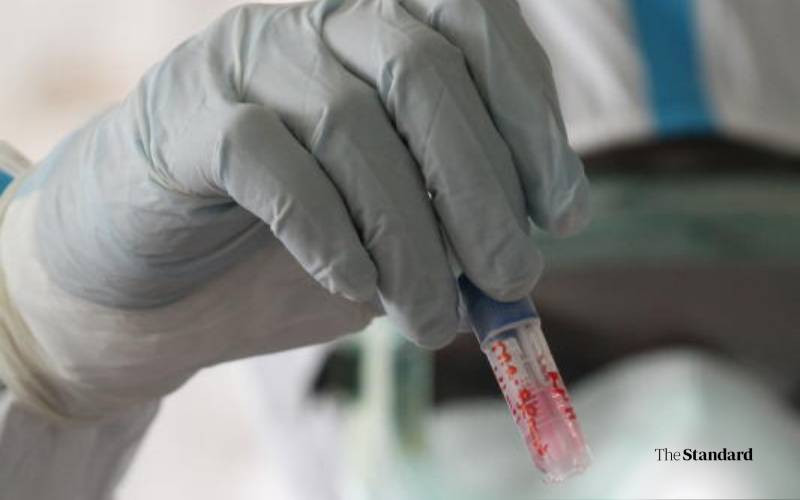Bill Gates urges Nigeria, Africa to invest in PHC for better health outcomes
Billionaire philanthropist Bill Gates has reaffirmed that strengthening primary healthcare systems remains the most effective strategy for improving health outcomes and closing the gap in global health inequality.
Mr Gates, chair Gates Foundation made this known on Thursday during the Goalkeepers Nigeria event held in Lagos State on Wednesday.
He said despite decades of progress, most child deaths under five still occur in low-income countries.
He also noted that children born in Africa are still 50 times more likely to die before the age of five than those in high-income countries.
Mr Gates urges leaders to intensify efforts to strengthen health systems and save lives.
He also commended governments like Gombe State for their investments in community-based health infrastructure, noting that when PHC is well-funded and supported, it not only saves lives but also strengthens entire communities.
Mr Gates also highlighted the transformative role of innovation and artificial intelligence (AI) in healthcare, while urging African countries to localise these solutions to suit their unique challenges.
The Goalkeepers initiative by the Gates Foundation is a global platform launched in 2017 to accelerate progress toward the United Nations Sustainable Development Goals (SDGs).
It brings together world leaders, activists, and innovators to share data-driven insights and highlight solutions to the world’s most pressing challenges, including poverty, health disparities, and gender inequality.
Traditionally held in New York City during the UN General Assembly, the Goalkeepers event is being held in Nigeria for the first time.
The event featured a dynamic panel session titled “Scaling Solutions in AI and Health,” bringing together leading voices in technology, health, and social impact.
The session, hosted by Lehle Balde, a financial inclusion advocate and media personality, explored the transformative potential of artificial intelligence in improving health outcomes across Africa — with a clear call for inclusivity, local relevance, and sustainable partnerships.
One of the panelist, Nkem Okocha, founder of Mamamoni, a social enterprise focused on empowering low-income women through digital financial inclusion, reiterated the importance of partnerships in scaling health innovations.
Ms Okocha said no one can drive impact alone.
She noted the need for cross-sector collaborations — between innovators, governments, funders, and communities — to truly scale solutions that work for the people who need them most.
Another panelist, Olubayo Adekanmbi, CEO Data Science Nigeria challenged global perceptions of AI as a one-size-fits-all solution and called for a more tailored approach.
“If AI cannot learn our content, it cannot provide the right answers,” Mr Adekanmbi said, emphasising the need for training AI systems using African data, languages, and cultural contexts.
He warned that if African countries fail to localise AI development, they risk being left behind.
Mr Adekanmbi said it is imperative that we build AI that is rooted in our reality — one that understands our challenges and can respond to them meaningfully when the time comes.
He emphasised that most existing AI tools are trained on data that does not represent African languages, health systems, or realities.
Speaking during a panel session titled “Funding and Partnership”, the Governor of Gombe State, Inuwa Yahaya emphasised the urgent need to strengthen Nigeria’s health system, with particular focus on primary health care (PHC).
Mr Yahaya said that expanding access to PHC was a core promise of his campaign before taking office — one that his administration has remained committed to.
“I had to focus on the primary health care system, and today, we now have two primary health centres in every ward in Gombe State,” he said.
He noted that access to healthcare services in the state has significantly improved, with immunisation coverage also deepening at the grassroots.
However, challenges persist, particularly in workforce deployment and accountability.
“One of the problems is the attitude of health workers, especially those newly posted to rural areas,” he said.
To address this, he said the state introduced biometric attendance systems to monitor worker presence and reduce absenteeism.
Governor Yahaya also mentioned that prior to his administration, the budgetary allocation to health was very low.
“That has since changed,” he said, adding that his government has increased health funding to reflect the sector’s importance.
Also speaking at the event, Aliko Dangote, President and Chairman of the Dangote Group, said the partnership between his organisation and the Gates Foundation played a key role in eradicating the wild poliovirus in Nigeria.
Mr Dangote emphasised the urgent need to end medical tourism by investing in local drug production.
He called for stronger partnerships with the Gates Foundation and other stakeholders to build a more self-reliant healthcare system in Nigeria.













